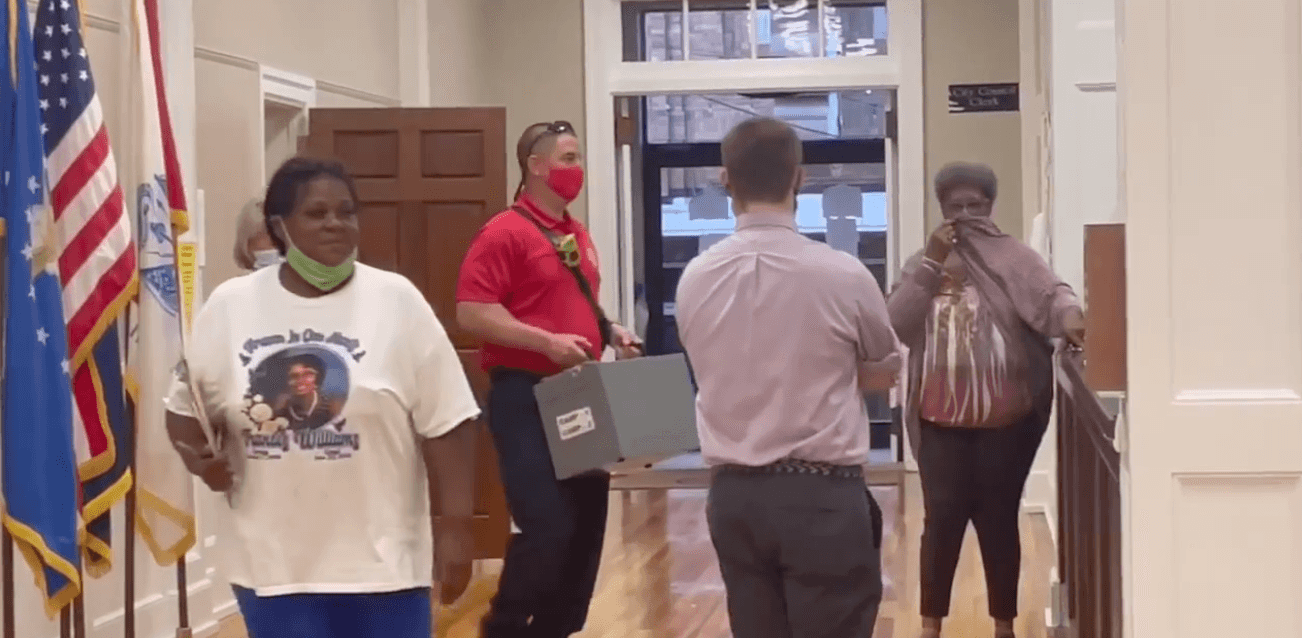
Reentry and voting: New report shows barriers faced by Mississippians after time in prison
Gabriela SzymanowskaMississippi Clarion Ledger — March 09, 2021
A new study suggests that Mississippians who finish prison sentences should have a clear path to reestablishing their voting rights instead of a system in which they often don't find success.
The report, "Our Voices, Our Votes: Felony Disenfranchisement and Reentry in Mississippi," weaves together data, personal stories and state history to show how some laws and policies continue to silence the incarcerated, even after they're released from prison.
The report states Mississippi had the third highest incarceration rate in the United States in 2018 with 1,039 out of every 100,000 Mississippians being locked in jail or prison. In 2020, a total of 235,152 people, or 11% or the state's population, were deprived the right to vote due to a felony conviction.
Further data showed in the same year 130,501 Black residents, nearly 16% of the Black electorate, were deprived the right to vote.
The report was put together by the Advancement Project, a multiracial civil rights organization, One Voice Mississippi, a group working to achieve progressive civic infrastructure in the South, and Mississippi Votes, a group invested in progression of the state.
Under current law, those convicted of 22 specific felony offenses in the state are banned from voting for life, according to the report. Some of the felonies include arson, embezzlement, murder, robbery and theft, according to The Sentencing Project, an organization working to reduce the use of incarceration in the United States.
If someone convicted of one of 22 specific felonies wants to restore their right to vote, they can either lobby to have the Mississippi Legislature restore their right or ask the governor to grant them their right, according to the report.
Jeralyn Cave, senior communications associate for the Advancement Project's national office, said only a few of individuals who go through the process of restoring their right to vote actually receive it in the end.
Those reentering into society face many obstacles which the justice system does not prepare them for, like finding housing and a job, according to the report.
Each step is made difficult by various laws set in place which impact an individual's ability to do such things as finding a job. While 12 states have passed laws limiting how far background checks can go, Mississippi has no such law in place, according to the report.
The report recommends several policy changes aimed at helping people returning home from prison. One such change would be to restore voting rights to everyone who has completed their prison term, including those serving time for the 22 disenfranchising offenses.
Another suggested change is creating a clear and inclusive process for approving applications for those seeking to restore their right to vote.
To help those reentering society, the report includes creating a guide on completing probation, parole and supervision, and establishing programs for housing, employment, transportation and ongoing treatment, among other policy changes.
Contact Gabriela Szymanowska at gszymanowska@gannett.com, or on Twitter.
